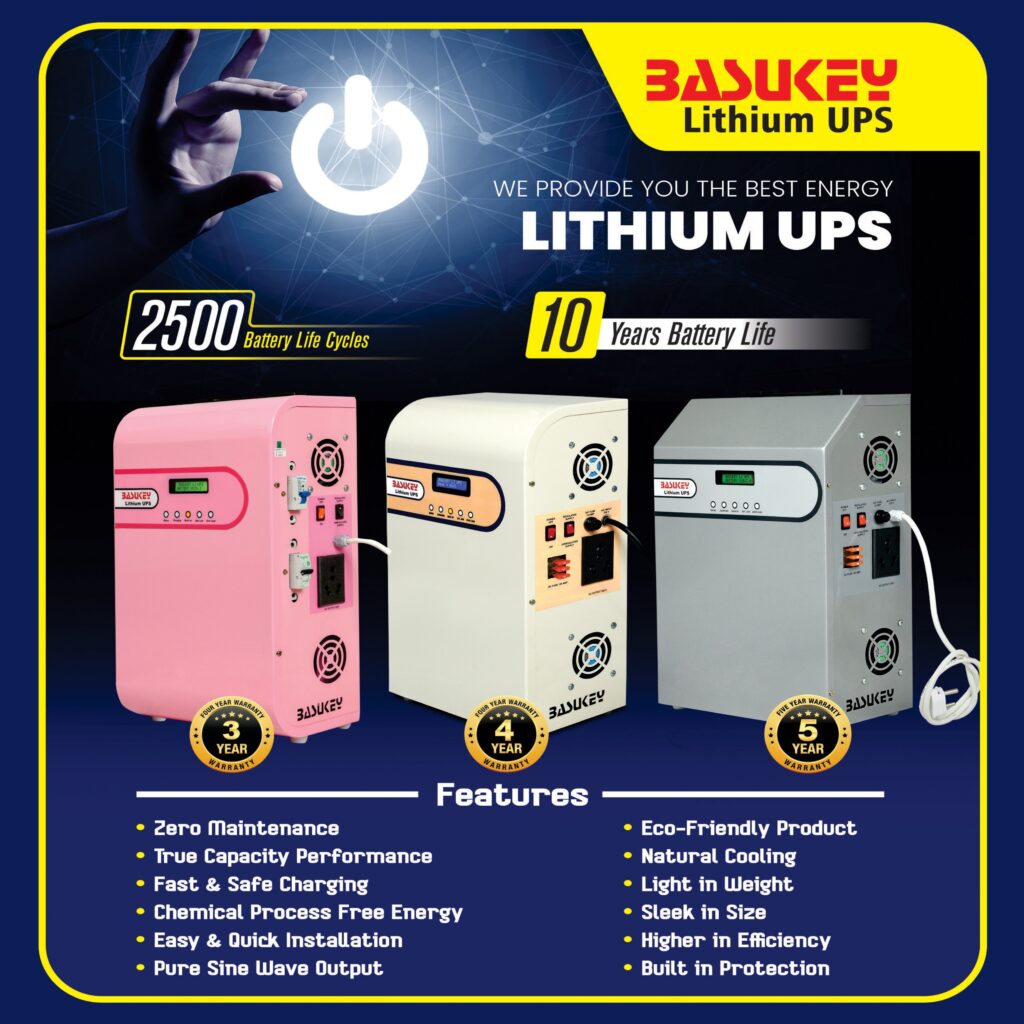The Evolution of UPS Systems: From Lead-Acid to Lithium Batteries
The Evolution of UPS Systems: From Lead-Acid to Lithium Batteries. Uninterruptible Power Supply (UPS) systems have been essential for ensuring reliable backup power in homes, businesses, and industries. Over the years, UPS technology has evolved significantly, shifting from traditional lead-acid batteries to more advanced lithium-ion solutions. This evolution has not only improved efficiency but also enhanced sustainability and cost-effectiveness.
The Early Days: Lead-Acid UPS Batteries
For decades, lead-acid batteries were the standard for UPS systems. Their widespread use was due to their:
1. Low Initial Cost – Affordable compared to other battery technologies.
2. Proven Reliability – Used in power backup for decades.
3.Scalability – Easily adaptable for different power requirements.

However, lead-acid batteries also came with several limitations:
a. Short Lifespan – Typically lasts 3-5 years, requiring frequent replacements.
b. Heavy & Bulky – Difficult to install and maintain due to their weight.
c. Slow Charging – Takes longer to recharge, leading to downtime in critical systems.
d. High Maintenance – Requires periodic checks for electrolyte levels and corrosion.
e.Environmental Concerns – Contains toxic lead and sulfuric acid, making disposal challenging.
As power demands increased, the need for a more efficient, durable, and eco-friendly alternative became evident.
The Shift to Lithium-Ion UPS Systems
The introduction of lithium-ion (Li-ion) battery technology revolutionized the UPS industry. Originally developed for portable electronics and electric vehicles, lithium batteries have now become the gold standard for UPS systems.
Why Lithium-Ion is the Future of UPS Systems
1. Longer Lifespan – Lithium UPS batteries last 10-15 years, significantly reducing replacement costs.
2. Faster Charging – Charges up to 5x faster than lead-acid batteries, ensuring continuous power.
3. Lightweight & Compact – Up to 60% lighter, making installation easier.
4. Higher Efficiency – Offers up to 98% round-trip efficiency, minimizing energy loss.
5. Enhanced Safety – Advanced Battery Management Systems (BMS) prevent overheating, overcharging, and short circuits.
6. Eco-Friendly – Contains no harmful heavy metals, making disposal and recycling easier.
Comparing Lead-Acid vs. Lithium UPS Batteries
| Feature | Lead-Acid UPS | Lithium UPS |
|---|---|---|
| Lifespan | 3-5 years | 10-15 years |
| Weight | Heavy & bulky | Lightweight & compact |
| Charging Speed | Slow | 5x faster |
| Efficiency | ~75% | Up to 98% |
| Depth of Discharge (DoD) | ~50% | 90-95% |
| Maintenance | Regular upkeep | Maintenance-free |
| Environmental Impact | Hazardous materials | Eco-friendly |
The Future of UPS Systems: Why Lithium is the Best Choice
With the growing demand for energy-efficient and long-lasting backup power solutions, lithium-ion UPS systems are quickly becoming the preferred choice for:
I. Residential Backup Power – Keeps homes powered during outages.
II. Businesses & Data Centers – Protects critical systems from power interruptions.
III. Industrial & Commercial Use – Ensures stable power for high-load applications.
IV. Renewable Energy Integration – Works seamlessly with solar and wind energy storage.
Conclusion
The transition from lead-acid to lithium UPS systems marks a major leap in power backup technology. Lithium-ion batteries offer unmatched efficiency, longevity, and sustainability, making them the best choice for modern UPS applications. As technology advances, adopting lithium-based UPS solutions will ensure reliable and uninterrupted power for years to come.
